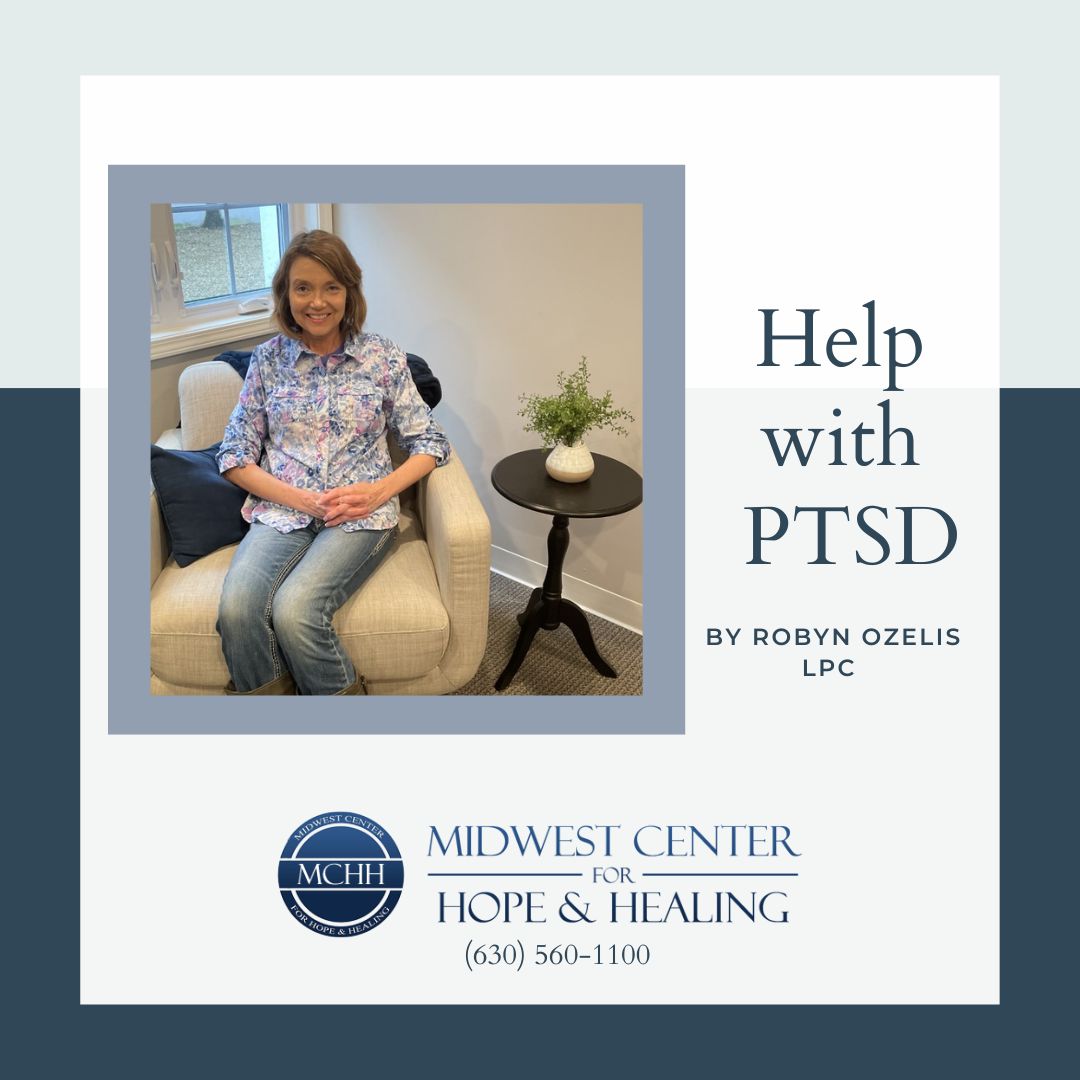
By MCHH Therapist Robin Ozelis, LPC
Many people wonder if they have Post-Traumatic Stress Disorder (PTSD). We have all had traumas in our lives. The significance of these traumas cannot solely be measured by the severity of the event itself, but in how our mind processes the trauma, and copes with it. This is where PTSD comes in. In PTSD, recurring thoughts and symptoms of PTSD occur following a perceived or real life-threatening event concerning one’s own life or the life of someone that we care about. In the latter case, we would have had to observe or heard that life threatening event as it was occurring. A person with PTSD then relives that event through nightmares and flashbacks which entail severe panic and interfere with their daily life functioning.
Here is a link to the criteria for the official diagnosis of PTSD: Exhibit 1.3-4, DSM-5 Diagnostic Criteria for PTSD – Trauma-Informed Care in Behavioral Health Services – NCBI Bookshelf (nih.gov)
If a person has some, but not all of the symptoms of the PTSD diagnosis, they may still benefit from PTSD treatment strategies. As a therapist, I look at helping my clients in the following ways when they are working on symptoms of trauma.
First of all, I would like to talk to you about the traumatic event(s), and how it/they has/have effected your life, in order to gain perspective on the scope of it.
Next, I would ask you if you were ready to explore this event in order to process and desensitize the trauma of it.
I will never push you to talk about something that you do not feel equipped to handle then.
Throughout our therapy together, I would incorporate calming techniques such as box breathing, progressive relaxation, guided meditation and Emotional Freedom Tapping (EFT).
I would explore the thought process you had at the time of the event(s) to see if there were any things that you told yourself that could be hampering your recovery from the trauma.
I would also explore how your body felt during the event, to help me aid you in lessening any resulting tension.
Also, I would look at anything that happened previously to the trauma, or any belief systems that may have, that have led you to believe that you were responsible for the trauma.
As we are discussing the trauma, I would look at the settings in which you are triggered now, and the ways that the trauma is affecting your life. We would also explore the triggers for the trauma together. In this way you can learn to avoid those things that trigger a trauma response. I would further explore how you are coping with this trauma and the successes that you are having in doing so. I would also explore how this trauma is affecting your sleep and daily routine, so that together we can figure out ways to regain a healthy good night’s sleep and the energy to go through your day.
My name is Robin Ozelis, I’m a Licensed Professional Counselor who works at Midwest Center for Hope and Healing in Oak Brook IL. I have had successes in helping people minimize their PTSD responses and regain more control of their lives. No one should ever have to be struck in the trauma of the past. I hope that you will consider therapy with me or another counselor of your choice, to help you get past your trauma and live in a brighter present and future.
